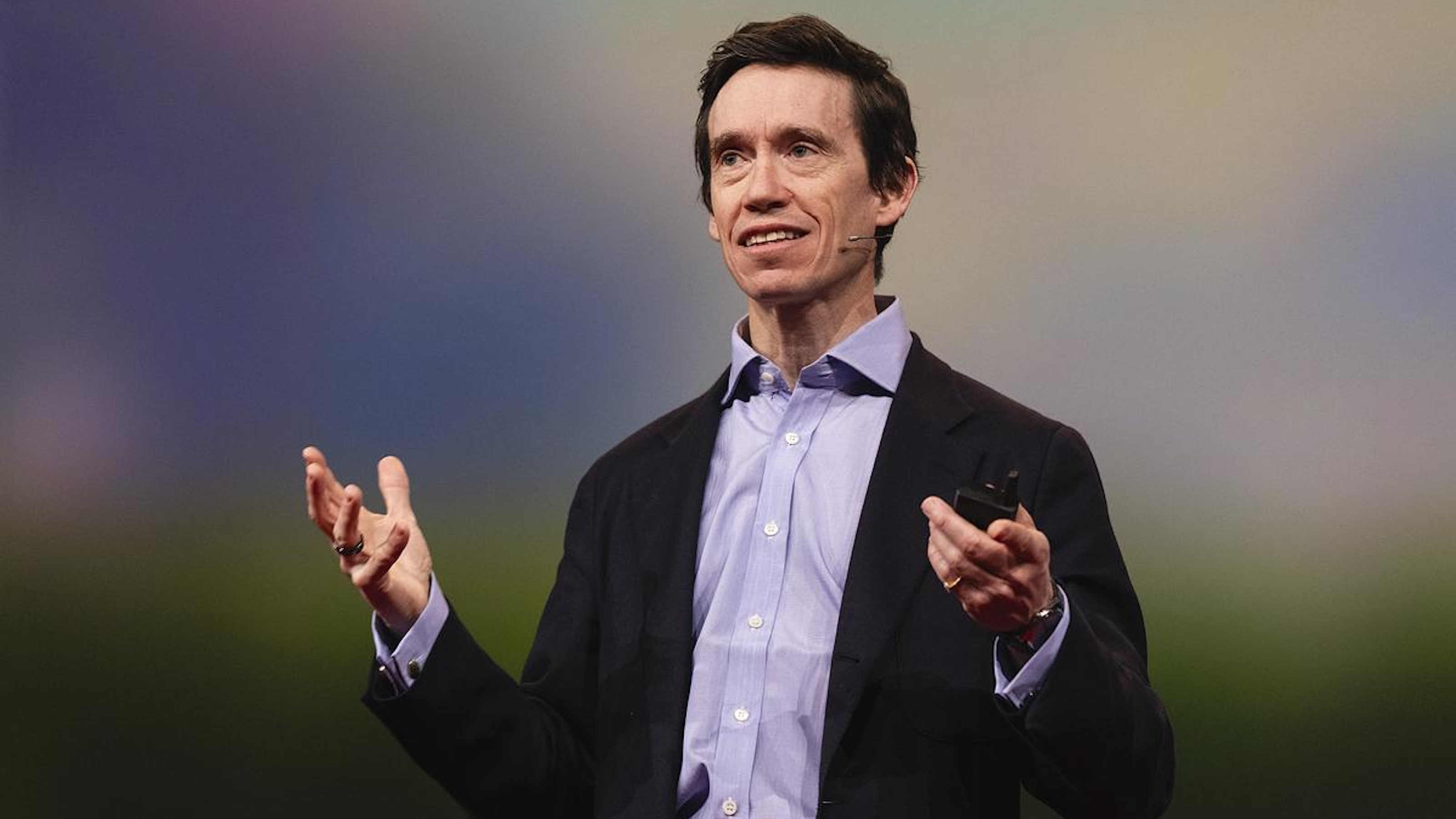How can businesses deal rising health care costs?
I normally would ask for a show of hands of who thinks their health insurance works for them and who knows how healthcare works and how it’s going. I stopped doing that about five years ago because nobody ever raised their hand so lets just stipulate that it needs some work and I’m going to suggest that it’s going to require a lot of heavy lifting and new roles for everybody because there is no simple answer here; there are no silver bullets. But there are some very clear directions that make a lot of sense and basically that we have to get on with this because we have very, very significant issues… Healthcare is eating the economy. We’re not far away from one in every five dollars being tied up in healthcare in some form. As the world becomes globally competitive, it is a fact that this is hurting us and our ability to compete around the world. There are lots of reasons; I could make probably three pages worth of things that are driving all of this, but I’ll just take you down to the middle of this list. It says “the epidemic of elective healthcare.” The American public has an insatiable demand for healthcare. There are studies out there that would indicate that up to 50%, 5 – 0 percent, of all healthcare delivered in this country is of no value add. Now pick a number, maybe it’s not 50, it could be 15 or 20 but it’s a lot and it’s a $2 trillion industry and it’s having the implications I mentioned relatively to the economy. So there’s opportunity and you have to ask yourself, why do we have such a demand? What’s driving it and I’ll take you back to the forty’s to answer that for you. It’s the third party payment system. To the extent that you as employers are trying to finance all of the healthcare your employees and their providers can dream up and think they need. You don’t have any of the normal economic incentives in place that would drive the productivity and efficiency that we see in the rest of the economy. And so you have a behavioral problem here in many, many ways and I’ll touch on a lot of them. Employers, of course, are struggling, this is round table survey data that comes in every quarter and every single time, even in the worst days of the energy price, prices booming, healthcare always came in as the number one problem folks have. So employers are struggling, the families that we’re trying to cover aren’t exactly winning here. You’ve seen it played out in this conversation between the UAW and GM in some ways, but there has been a very direct trade off in the cost of keeping benefits as we’ve traditionally kept them and the pay that people take home every week. That’s lost on many of our employees but there’s a direct relationship. So the bottom two lines are the CPI and wages; that big one is, at the high end, is the healthcare premiums. You can see that there was a point in the mid-90s that where it actually dropped quite nicely. That was at the epitome or at the pinnacle of managed care effectiveness and the public pushed back and said, “we don’t like that,” and politically there were reactions to this and at the end of the day, we unwound those tools that we had been putting in and you see inflation came right back. So what we have today is not working; we have to find a new way. It’d be fine if we were actually getting healthier by virtue of all this spending but we’re not; no value here. There’s, the last bullet is a friend of mine, Mark McClellan who ran CMS for a long time and this current administration who says healthcare system leads the world, but in many ways, it costs too much and does too little. I would dispute the word system here. We do not have a system of healthcare. If you go look that up in a book and fund the attributes of a system, processes, continuous improvement, connected; all the attributes of a system and think about healthcare and none of those are in place here. We have the best healthcare in the world if you can get to it, find it and pay for it. But we certainly don’t have a system because it is in no way connected. So what do we do? Let’s start, let’s just start by stipulating that the healthcare is a wreck. Why don’t we start there and I never get any dispute about that, by the way … There’s no simple answer. We as employers can’t do this by ourselves… But this is not something that we as employers can fix; we’re going to have to have help. At the end of the day, we have to get healthcare looking more like the rest of the economy. What does the rest of the economy look like? Productivity gains, the envy of the world; quality is higher; costs are lower; efficiency at every turn; constant progress; poor products and poor services get crushed. Not in healthcare; poor products and poor services are paid for just like the good ones and they go on forever … Basically these are all the players: you have employers, consumers, providers which are hospitals and doctors and laboratories and such, our government and companies like us. We’re the financial glue of healthcare … So when we talk about, what do we have to do differently? I say to employers, first of all, this one kills me and the bigger the company is the worse they are about this; they think they know how to fix this. So I tell them, knock it off. This is not your core business, you will not be able to fix healthcare; you need to find somebody like a Humana whoever it might be, you need to hook up with them and together you better find a strategy and turn them loose to do the work and don’t fracture the services that you’re providing to your people. Don’t put your drugs in one bucket, your disease management in another bucket; go find somebody to pay claims, bring back a Frankenstein monster and yes, it does walk around but it’s kind of clunky and at the end of the day, it’s not even working. So why do we keep doing this? I don’t know. So turn loose these health plans; find a good one, stick with them and work on a multi-year strategy here. Encourage employee engagement. Whether we like it or not as employers, we have to educate our people. We don’t have any real choice here.




